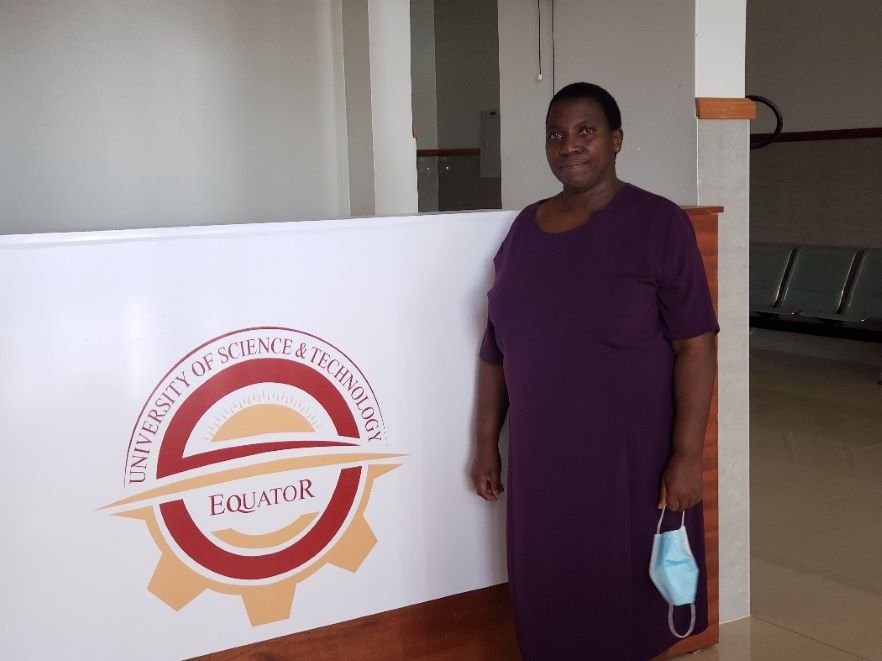Meet Uganda’s Dr. Najjuka, a Champion for Infection Prevention and Control at All Levels
By Marion Murungi, Senior Technical Advisor, USAID MTaPS Uganda
Based on an interview with Dr. Christine Najjuka, a medical doctor, medical microbiologist, and champion of AMR research in Uganda. Originally published in the Uganda AMR newsletter.
Dr. Christine Najjuka’s interest in antimicrobial resistance (AMR) was first peaked when her mentor, Dr. John Baingana, brought to light the imperativeness of having an active infection prevention and control (IPC) committee within Mulago Hospital where she worked. Dr. Baingana advocated for infection prevention nurses whose main role is to monitor adherence to and compliance with IPC in the hospital. The idea of IPC nurses was met with a lot of resistance. However, following the death of the then-hospital director due to a resistant pathogen, Dr. Najjuka became more determined to draw the attention of health workers and hospital administration to the urgency of IPC by taking samples from the operating theater. She cultured and used the samples to prove the presence of the same resistant strains within the theater.

As an AMR champion and female leader in her field, Dr. Najjuka’s journey was not easy. Her passion for AMR research took root when she attended a conference on AMR in Italy in 1998. Since then, she has published more than 50 articles on AMR and taught students at the undergraduate and graduate levels. She often met resistance at various levels of engagement, such as when soliciting funding for her research or making a case for nurses as an integral part of hospital IPC. In line with MTaPS’ ongoing work and approach to supporting Uganda’s Ministry of Health (MOH) in implementing the AMR National Action Plan (NAP), Dr. Najjuka emphasized the need for evidence-based interventions at the national and health-facility levels.
“You will not be able to sustain interest in the fight against AMR if results are not there. Prescribers should base their treatments on microbiology results, pharmacists should appreciate the role of laboratory results to inform the selection of drugs for procurement, and policy makers should translate findings into programmatic and policy changes,” says Dr. Najjuka.
Dr. Najjuka also notes that the attitude problem among health workers toward IPC and antimicrobial stewardship (AMS) needs to be addressed, adding that, very often, sample-taking in itself is done in an inappropriate manner and can contaminate the sample, giving inaccurate results.
Dr. Najjuka concluded by calling on policymakers to ensure that the preservice curriculum focuses on IPC and AMR, beginning in primary school with instilling the basics of hand hygiene. She advocates for instituting IPC structures at every level of the health system and for all health facilities to routinely audit the quality of care they are offering by auditing their IPC infrastructure. Currently, Dr. Najjuka is lending her knowledge and expertise to guide the setup of Equator University of Science and Technology in Masaka. As a member of the MOH’s National Antimicrobial Resistance Sub-Committee, she appreciates the role of MTaPS in Uganda in assisting the sub-committee in setting up clear terms of reference and providing support for routine meetings, which aid in coordinating IPC plans and interventions and sharing best practices at both the national and health-facility levels.
Dr. Christine Najjuka completed her bachelor of medicine and bachelor of surgery in 1983 and, later, a master of medicine (pathology) at Makerere University. Dr. Najjuka also holds an MS in medical microbiology from University College London (1994) and has garnered many awards and taken various short courses on immunology, vaccinology, and biotechnology throughout her career. She holds a PhD in microbiology from Makerere University, where she has been a senior lecturer since 1996.